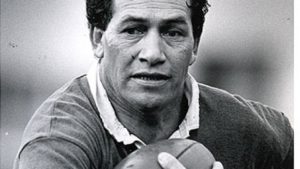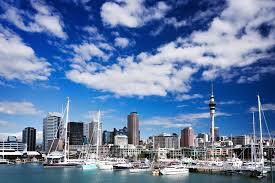
It’s a question on the lips of very, very few people: should New Zealand replace Queen Elizabeth II with Winston Peters as our Head of State?
Many people are talking about the day when New Zealand finally casts off the last vestiges of British cultural dominance. For some reason, the obvious thing to do when this day comes is widely considered to be to become a republic. A man no less knowledgeable than David Lange said that New Zealand will inevitably become a republic.
There’s a problem with this cozy narrative, though: most republics around the world are shit.
Indeed, if you say “The Republic” to a New Zealander they will probably think immediately of South Africa, which is hardly a country New Zealand wants to emulate. By almost every measure: wealth, crime, education, corruption, healthcare, justice, race relations – New Zealand is a much better country than South Africa.
As Plato could have told us, the basic problem with a democracy is that when the head of state represents the mob, you inevitably end up with a tyranny, as the cruder elements of human nature, left unchecked, express themselves in abusive government.
This is why the Roman Republic ended up with the assassination of Caesar and civil war, why the Weimar Republic gave us Hitler, and why the death throes of the American Republic has presented us with a choice between the buffoonish Donald Trump and the execrable Hillary Clinton.
Not only do republics run a serious risk of being shit, but constitutional monarchies (as New Zealand is) fill most of the list of the decent countries in the world. Almost every decent country in Europe – Britain, Sweden, the Netherlands, Norway, Denmark, Belgium, Monaco and Liechtenstein – is a constitutional monarchy, as is Canada, Australia, Japan and Thailand.
Constitutional monarchies, in which the head of state is a monarch whose powers are laid out in the form of a constitution, have some massive advantages over Presidential systems. The foremost, as mentioned above, is that they can avoid putting all power in the hands of a representative of the lowest common denominator.
Another is that, because monarchs have no term limits, the monarch (and their various consorts, princes, dukes etc.) will remain engaged with the government over the course of many decades. The British Government benefits immensely from the wisdom offered by Queen Elizabeth II, who, in the natural course of her business as Queen, has had the opportunity to meet an unprecedented number of influential people.
In this way, the monarch offers a link to the past that allows for a higher, more detached perspective. This is only possible because the monarch does not sully themselves with an undertaking as filthy as politics in the first place. Would any group of American intellectuals call upon the wisdom of George W Bush?
If the argument for a constitutional monarchy is accepted, why Winston Peters?
First and foremost, Winston Peters is actually a Kiwi. He is not a German who lives in England. All other things being equal, this makes him vastly more qualified than Queen Elizabeth II, for whom New Zealand might as well be on the Moon.
Peters is also both Maori and Pakeha, and therefore better represents the blood whose vital energies founded and gave rise to the nation than any foreign monarch could. Not only that, but also more than any Kiwi who was not themselves both Maori and Pakeha. Even better is that he does not identify solely with either group, having previously made a big deal about ending the “grievance industry” beloved of black magicians among Maori elites.
Aside from his crude racial qualities, Peters is of auspicious family: two of his brothers have also been MPs.
Despite that, Peters is far from an upper-middle class twit. He was previously captain of the Auckland Maori rugby side and played in trials for the New Zealand Maori. This makes him a man for all people, from the rugged colonial who hewed the country out of rock and kauri to the gentle statesmen of modern Wellington.
That is not the only way he represents what is innately good about the Shaky Isles. He is also an explorer, like everyone who immigrated to here over the years. He has been to North Korea to meet their leaders when he represented the nation as Foreign Minister in the Clark Government. This is something that can be said of no other Kiwi, and probably few of us would have the gumption to travel to North Korea as a representative of the nation.
His wisdom has been demonstrated by the Winebox inquiry, being right about the need to switch to a Western European pension system, and by being right about the effects of mass immigration on social cohesion. Since most of the impetus behind letting so many immigrants in is to make quick money as soon as possible, Peters’s attitude represents the kind of long-sighted calmness everyone needs in a king.
And his commitment to the nation is unquestioned. Even losing his Parliamentary seat in the General Election of 2008 was not enough to cause him to give up. In this regard he is equalled only by people like Richie McCaw and Edmund Hillary.

Crucially, none of these things necessarily qualify him for a place in Parliament, which is, of course, a nest of scum-sucking, lying, parasitic whores, and never more so than right now under a John Key Government.
This proposal raises obvious questions regarding whether the position be hereditary or not (it could be ceremonial), and the precise limits to monarchic power.
It seems that the time has come for New Zealand to stand on its own two feet and make Winston Peters the King of the constitutional monarchy of Aotearoa.




